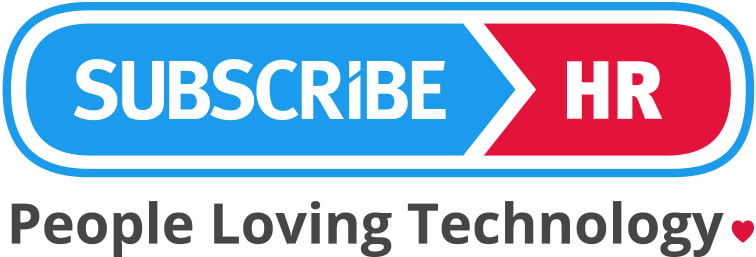Here at Subscribe-HR, we have long been advocates for building more human workplaces. Our focus is on building software that at its foundation enables and facilitates the end-goal of making such workplace environments possible. Ultimately, building a human workplace culture, and making work more 'human' is the best way to create more engaged, productive, and ultimately more happy employees. Right about now though, you might be wondering exactly what it means to make work 'more human.' Just as 'The Human Era' heralded the decline of the Institutional era and ushered in a search for trust; trustworthiness in others, in businesses and in brands, building a human workplace culture is shaping up to be an essential ingredient in positively impacting the employee experience, culture management, and leadership. At its core, it is about creating workplace environments where people can show up at work and be fully themselves, that is; be whole and imperfect, be real, and be accepted.
A discussion around 'human workplaces' naturally orients itself towards several lines of enquiry:
-
What factors make a workplace more human?
-
What is the impact of a more human workplace on individual and collective wellbeing?
-
How can Leaders, Managers and HR work together to create a more human workplace?
Key Drivers of the Human Workplace
Whilst the essential elements of a human workplace culture may be challenging to implement, what makes employees happy, and makes them feel good, not just about their work, but also about themselves whilst they're doing that work, comes down to some pretty basic fundamentals:
-
Giving employees a voice, and showing that their opinions are both heard and valued (through action taken by the business) makes them feel like Leaders actually care.
-
Being open and transparent about information, treating employees like adults and letting them know exactly what's going on in the workplace, even if that news isn't always good or pretty, goes a long way to keeping things real. Honesty is a very undervalued commodity in most workplaces, as is cultivating the individual capacity to speak honestly AND kindly.
-
When Employees have access to learning and development opportunitites that enable them to grow in their role from both a professional and personal standpoint, this correlates strongly with perceptions of a human workplace culture.
-
The opportunity to feel and express gratitude, to recognise others in the team, or wider organisation, significantly impacts wellbeing and creates a more human context in the workplace.
-
When Employees feel appreciated for what they do, and are recognised openly and transparently for their contribution and value, particularly from Leaders and Managers, this also has a significant impact on creating a more human oriented culture.
-
When Employees are able to have fun and play together in the workplace, this freedom goes a long way to making Employees feel like the Leadership team actually cares.
-
Ensuring that all Employees are treated with respect, not just by Managers and Leaders, but in a way where respect is both modelled, valued and lived in all workpalce relationships, (no matter the level of seniority of individuals in any given exchange), is critical and extremely beneficial.
-
When the personal values of Employees show a high degree of alignment with the core values of the organisation they work for, there is more likelihood that they will perceive the workplace as being more human.
Key Impacts of A More Human Workplace
Traditional metrics such as good engagement, high levels of retention, and positive reflection on employer brand show significant correlation with human workplace practices such as recognition, transparency, and respect for individual needs and growth. Emerging metrics such as happiness, optimism, and attitudes toward change also show correlative trends.
Organisations taking a proactive approach to creating a more human workplace have the potential to inherit significant rewards in terms of people metrics and ROI. However, it can still be challenging to ascertain which workplace practices are most effective in achieving goals that can sometimes seem lofty and ambitious because they lie on the softer side of the equation and can be hard to measure accurately. Not only that, having the tools, systems and processes in place to manage ever increasing workplace demands at the same time as focusing on embedding a human workplace culture is not an insignificant task.

What Can Leadership, Management and HR Do Create More Human Workplaces
A crucial part of the culture equation lies in understanding which levers to pull to improve employee behavior, attitudes, and improve business results. How do you drive cultural change in a way that resonates with employees, and at the same time propels the business forward.
The essential elements can be illustrated by the following 5 statements:
-
When Employees perceive that leaders are striving (through visible actions) to create a more human workplace, culture metrics improve.
-
Recognition and honest, transparent feedback significantly improves engagement, and contributes to a more human culture.
-
Visible efforts made towards giving more recognition and commitment to taking action (as opposed to just paying lip service) towards building a more human workplace, improve Employee attitudes toward change and increase their levels of optimism for the future.
-
When Leaders take action to build trust with all Employees throughout the organisation, this significantly impacts the 'human' factor. It has been proven that Employees trust colleagues most, but it is trust for Leaders that most impacts culture.
-
Both recognition and a 'whole human' oriented environment are drivers of employee wellbeing and happiness.
What is interesting to note is that individual perceptions play a key role in determining where on the the human factor scale your workplace will be. It is clear that whilst many businesses have considerable inroads to make in terms of transitioning to a more human workplace culture, Employees respond in kind to perceived efforts with increased levels of commitment, enthusiasm, optimism and trust.
When the whole business (not just Management and Leadership) participates in the process of building workplaces that foster better work, better relationships and a better culture that incorporates the human factor, then real transformation becomes possible. Ultimately, it is not difficult to behave in ways that shift the needle in a positive direction at a fundamental level. Ensuring that everyone in your business respects everyone else as individuals, that all Employees are recognised and appreciated, and that there are systems and processes in place to ensure Employees are empowered to enhance their wellbeing, will go a long way towards making your workplace more human, more enjoyable, more real. Saying this may seem redundant because you would assume that these basics are already in place. However, anyone who has been an Employee, in a business small, medium or large, will know through experience that this is not necessarily always the case.
When whole organisations: that is Leadership, Management, HR and every single Employee, are both enrolled in and committed to, creating a workplace that places value on the human factor, benefits can be far reaching. The potential lies in creating a unified, human workplace culture that can give your business the competitive edge to be successful in today’s evolving business climate.

